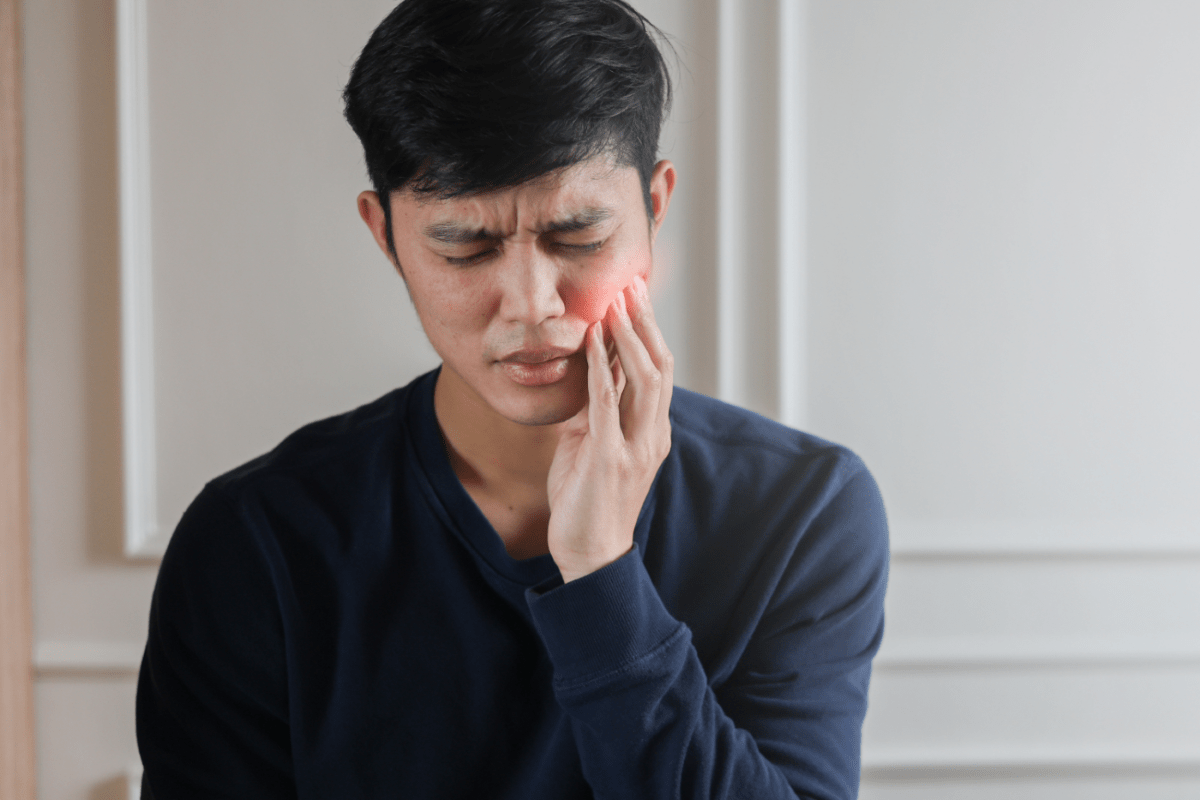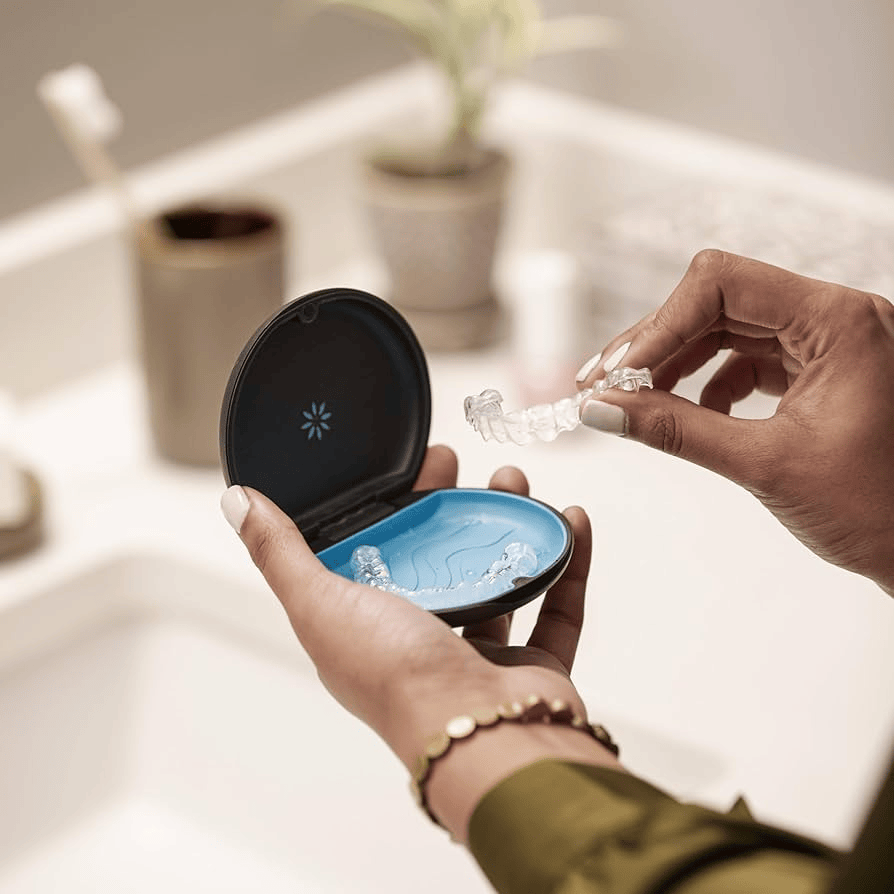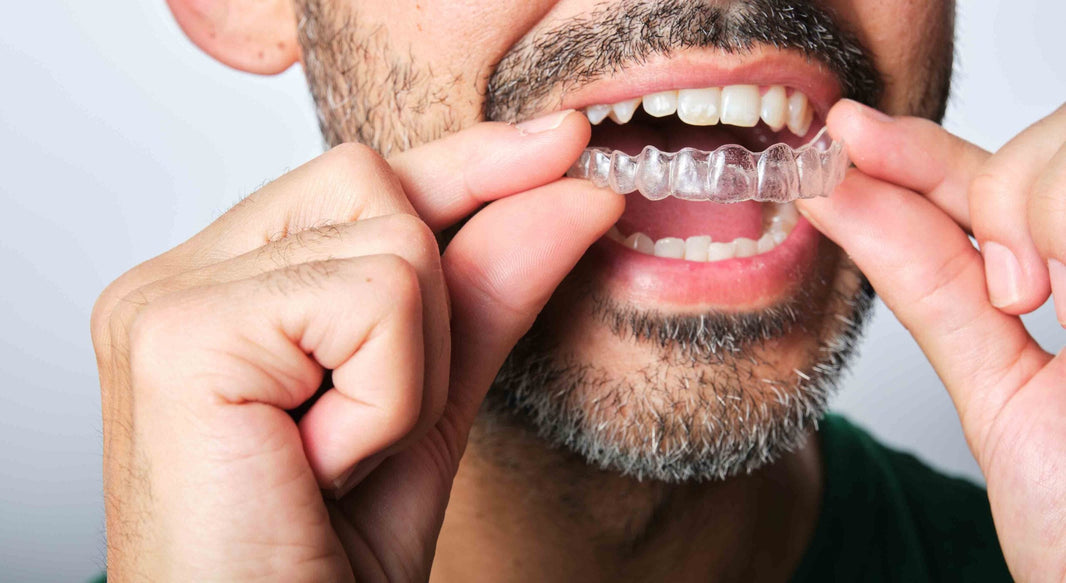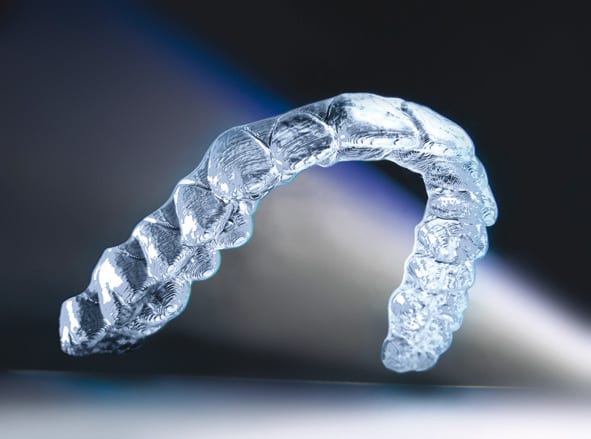Sharp pain may come from a poking wire, an ill-fitting bracket, or nerve pressure caused by misalignment. In rare cases, it could also signal infection or inflammation that requires urgent dental care.
Table of contents
When Orthodontic Pain Might Signal a Bigger Problem
Some discomfort is expected with braces—but when that discomfort feels like a sudden, sharp jolt or ongoing stabbing pain, it’s worth paying closer attention. Unlike the gentle pressure you feel after a braces adjustment, strong pain could mean something is wrong with your braces or even with your oral health.
What Causes Sharp Dental Pain with Braces?
While most orthodontic pain is dull and temporary, sharp or shooting pain usually signals something more specific. Braces work by applying continuous force to shift teeth, and when that force is concentrated in the wrong area— or if there’s mechanical interference— it can cause sudden pain. Pain that’s focused in one spot and doesn’t ease within a day or two isn’t typical and should be brought up with your orthodontist.
Common causes include:
A wire that’s pressing into your gums or cheeks
A bracket or band applying too much pressure to a single tooth
Shifting teeth creating unexpected nerve sensitivity
A cracked tooth or cavity developing under the braces
Gum inflammation or infection due to trapped food or plaque

When to Call Your Orthodontist or Dentist for Braces Pain
Persistent or stabbing pain from braces should never be ignored. Orthodontists may need to reposition wires, replace brackets, or assess underlying issues like cracked teeth or inflamed nerves. If pain worsens, spreads, or disrupts eating or sleeping, it may require emergency dental attention. Don’t wait for your next scheduled visit—call your orthodontist or local dentist office to explain your symptoms.
Seek urgent attention if:
You feel electric-like zaps or shooting pain
Pain worsens instead of improving after adjustments
Swelling, bleeding, or visible sores accompany the pain
There’s a foul taste or smell (could signal infection)
A specific tooth hurts when biting or chewing
Dental Home Remedies for Sharp Braces Pain
While waiting for your dental appointment, you can try some at-home relief strategies to manage pain. These don’t replace a visit to the orthodontist but can offer temporary comfort.
At-Home Relief Tips:
Rinse with warm salt water to reduce swelling
Use orthodontic wax to cushion wires or brackets
Apply a cold compress on the outside of the cheek
Stick to soft foods and avoid chewing on the painful side
Take an over-the-counter pain reliever if recommended by your dentist
Could It Be a Dental Issue, Not Just Braces?
Sometimes, pain that seems caused by braces is actually rooted in a broader dental problem. Conditions like cavities, cracked teeth, or infected gums can flare up during orthodontic treatment, especially when dental hygiene is compromised. This is especially important for adults with braces or those undergoing cosmetic procedures like dental veneers or dental whitening. Keep up with your general dentist appointments to rule out issues like:
Cavity forming behind or under brackets
Impacted food leading to gum inflammation
Dental fillings that have loosened or cracked
Adult Braces: Why Pain Feels Different
Adults with braces may experience sharper or longer-lasting pain than kids or teens. Mature teeth are more set in place, and orthodontic force can trigger more intense nerve feedback. In addition, adults are more likely to have pre-existing dental work (veneers, crowns, fillings) that may complicate the pressure applied by braces or aligners.
If you’re undergoing teeth straightening as an adult—whether through metal braces, clear aligners like Invisalign, or ceramic braces—tell your provider about past dental work. They may adjust your treatment plan to reduce discomfort and avoid stress on existing dental restorations.

Keep Dental Care Consistent
Braces don’t cause dental problems—but they can make small issues worse if oral hygiene slips. Sharp pain may be the result of gum inflammation, not hardware. Regular cleanings and exams at your local dental office help prevent emergencies.
Stay consistent with your dental care:
Brush with a soft-bristled toothbrush twice a day
Floss daily, using a floss threader if needed
Attend cleanings covered by your dental insurance plans
Don’t skip your checkups with your general dentist
Why do I feel sharp pain in one tooth after braces adjustment?
Sharp pain is often caused by a sudden shift of pressure on individual teeth following adjustment—it’s your bone and ligament responding to the force
Is sharp pain normal or a sign something is wrong?
A brief sharp twinge can be normal—but persistent, intense, or worsening pain, especially when biting, could signal a broken wire, loose bracket, or dental issue—call your ortho if it lasts more than a few days
What helps relieve sharp orthodontic pain immediately?
Apply a cold compress to numb the area, take ibuprofen or acetaminophen, use orthodontic wax on any irritating parts, and stick to soft, easy-to-chew foods for the first few days
Can a broken bracket or poking wire cause sharp pain?
Yes—exposed wire ends or loose brackets can poke your cheeks, gums, or tongue, leading to sharp, localized pain. Use wax immediately and schedule a repair
How long will sharp pain after braces tightening last?
Most post-adjustment discomfort, including sharp twinges, peaks around 24–48 hours and subsides within 3–5 days. Lingering sharp pain beyond one week should be evaluated .
Do sharp pains affect treatment progress?
Not usually—as long as the discomfort isn't due to damage or poor alignment. Mild sharpness can be part of effective tooth movement, but don’t ignore persistent sharp pain—it can delay treatment .
Time to Book a Dental Emergency?
If you're noticing signs of an discomfort with your braces—itching, swelling, persistent irritation—don’t wait. You may need a separate orthodontist or dentist appointment to address the issue, outside of your usual adjustment schedule.
Early intervention can save your smile from long-term setbacks and get you back on track with a safer, more comfortable solution. If you’re experiencing ongoing discomfort or can’t resolve the issue at home, you’ll likely need to schedule an emergency orthodontic visit.






